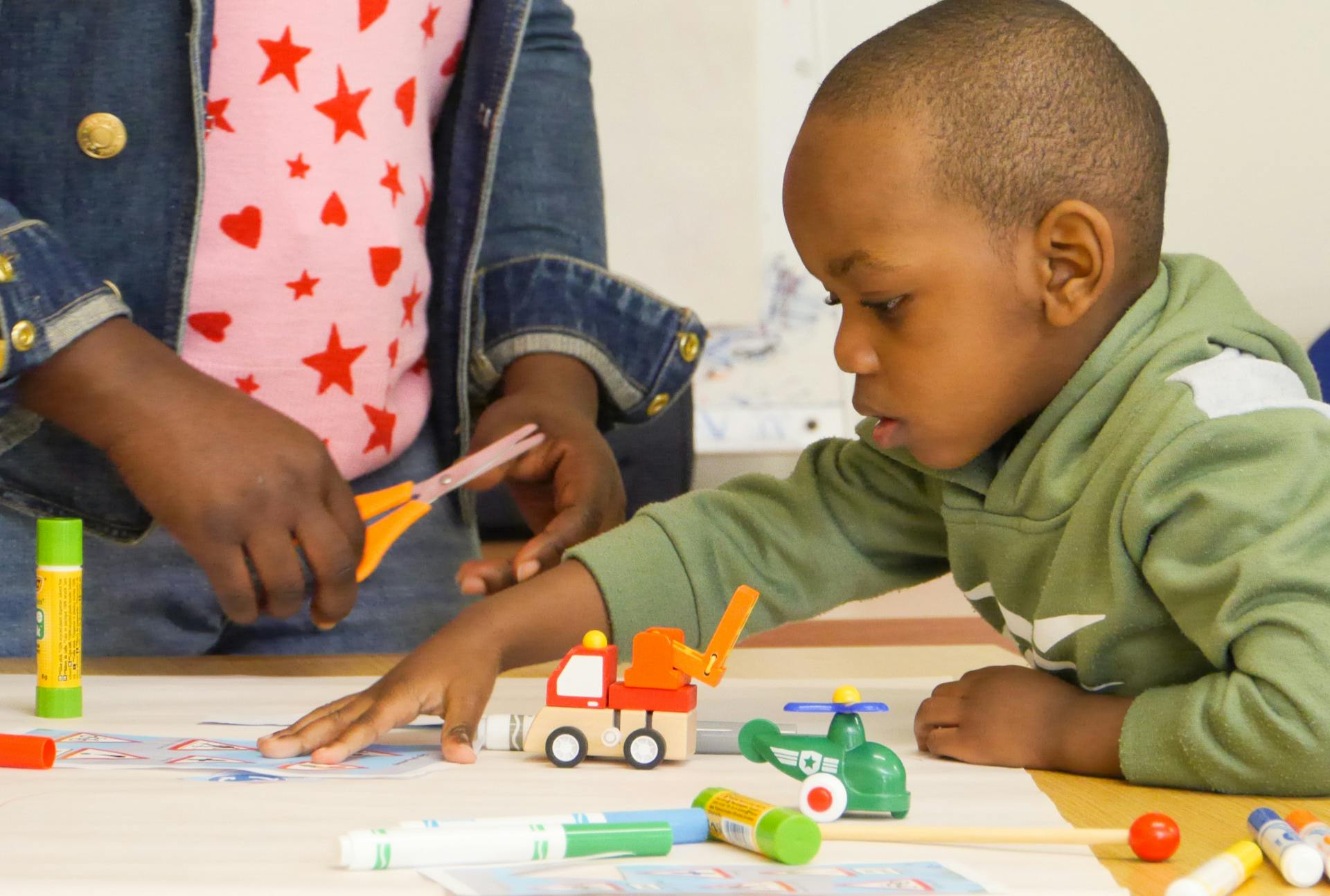Improving support for communication and language development in early years settings
Improving support for communication and language development in early years settings
An evaluation of three workforce development services

Supporting children to achieve positive outcomes
From 2015 onwards, LEAP created and funded a tailored package of services to support children’s communication and language development (CLD) outcomes.
This evaluation focuses on three LEAP services that supported practitioners within early years settings: The Speech and Language Therapy Evelina Award for Communication Friendly Environments (Evelina Award); Natural Thinkers; and Making it REAL (Raising Early Achievement in Literacy).
These services aimed to improve practitioners’ knowledge, confidence and practice in several ways:
- Identifying speech, language and communication needs (SLCN)
- Delivering targeted interventions for children, including through referrals to specialist support
- Contributing to communication friendly environments both indoors and outdoors
- Promoting parent/carer involvement in supporting children’s CLD
Background
Around 10% of children experience long-term speech, language and communication needs (SLCN), making it more likely that they will experience difficulties later in life.
Children from socially disadvantaged families are more than twice as likely to have SLCN. Analysis of Early Years Foundation Stage (EYFS) Profile Data also shows that children living in the LEAP area were significantly less likely to achieve the expected level of communication and language development compared to their peers.
Early years settings play a crucial role in supporting CLD. However, there are significant gaps in current provision, with particular concerns around practitioners’ ability to identify and address SLCN.
This evaluation sought to understand how, and to what extent, an intensive bundle of interventions aimed at driving improvements across whole settings could make a difference to a workforce under pressure. It also provides a range of recommendations for implementation and delivery at the system, setting and individual level.
Key findings and statistics
- Between 24 and 28 settings engaged with each service.
- Evelina Award training reached at least 700 practitioners. Natural Thinkers reached at least 142, and Making it REAL reached at least 99.
- Between 89 and 98% agreed the Evelina Award had improved their practice around identifying SLCN; making referrals to specialist speech and language therapy; supporting speech, language and communication (SLC) development through everyday interactions; and promoting parent/carer involvement in SLC development.
- Between 84 and 92% agreed that Natural Thinkers had improved the quality and frequency of outdoor activities, and their ability to promote parent/carer involvement in outdoor learning and play.
- 72% agreed that Making it REAL had improved their practice around supporting parents and carers to provide a high-quality home learning environment.
